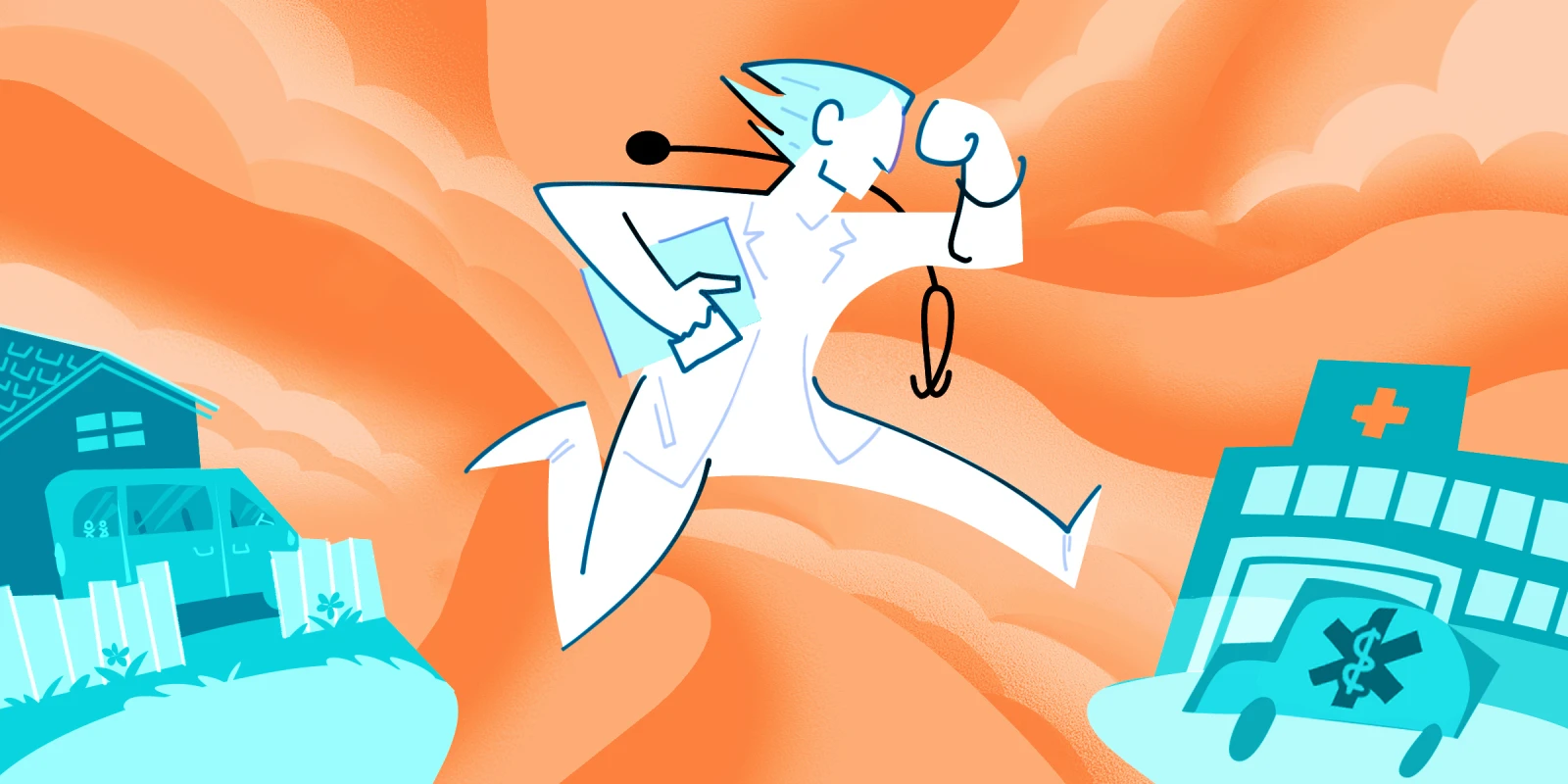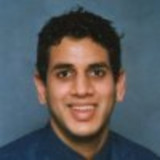Physicians often bathe in conflict. We reconcile the reality of disease with patient expectations, we manage consistently diminishing resources with increasing regulatory standards for documentation and process, or we maneuver through hospital politics in order to get through the day. To make matters worse, we are often positioned in the center of these conflicts as we interface directly with patients and are encouraged to be consummate professionals. Some of us will obsess over these conflicts. While it may simply seem perfectly acceptable to mentally perseverate over these issues, there is another subtle side effect — it follows me home.
We engage the high-stakes game of patient care all day, with the added benefits of frustrated staff and politics, only to go home to a family that often deals with our most spent selves. After a busy shift, I struggle to mentally engage in activities beyond meals and television. If something particularly stressful or salacious has occurred at work, I can withdraw and think about it for hours. My family will immediately recognize the withdrawn state and choose to let me ruminate while they focus on their tasks. While this routine may seem acceptable on occasion, the habitual state of inattention has material consequences; namely, you grow distant from your friends and family.
I have seen countless physicians consume themselves with work during the day only to go to home and think about work through the precious evening and weekend hours that they are free. In fact, I have had many colleagues brag that they would come to work early to escape a frustrated spouse or uncomfortable situation at home. These colleagues have become adept at navigating hospital politics but are lost when it comes to the needs of their loved ones. This escapist mindset can get validated by the financial success that accompanies our work or a sense of honor in caring about patients above all else. Realistically, the juice is not worth the squeeze. In fact, the priorities are completely off: Our personal lives matter much more than our profession, by several orders. Our focus on listening and healing should start at home and then extend to our patients, not the other way around.
I have three children, each of whom is uniquely curious. They respond to my cues. The less I interact with them, the less I learn about them. The more I inquire, the more they engage and the closer we become. I can sit in near silence through dinner or I can ask about their challenges in school. My wife has her own world full of ups and downs that requires an active listener. I have friends that are in similar places in their lives who often reach out to vent or talk through their challenges. Most of the time, I have no idea what to say or even how/if to help, but I try — and that effort is well received. After a busy day with many fires to put out, I often am numb to any conflicting ideology — though this is exactly when my friends and family need my attention the most. Though this depleted attention may seem relatable or natural, I think it can be destructive. Why? Because tending to these personal relationships will create true fulfillment. Workplace conflict will always exist and should not deplete me. I have been working on altering my approach so that I am my best version of self at home first and then at work.
I have heard various perspectives on whether our work is a calling or a job and I do not know where I reside on that spectrum. Realistically, this question doesn’t matter so long as one achieves a healthy balance between their professional and personal lives. While many thread the needle well on achieving this balance, I have seen countless physicians become absorbed by their practice. In this sense, I think the calling becomes a cancer that can destroy the essence of our personal relationships.
In a theoretical sense, I realize this all seems obvious. It also may seem like sacrilege. We take an oath to advocate for our patients above all else. I agree with this mission at its core but believe the principle can be overzealously applied. We can conflate overcommitting or overthinking about problems as caring when they are actually destructive tendencies that take up significant amounts of time and emotional energy.
But then how do you care less on a practical level? Detachment, for starters. I often identify topics that I realize will consume me and simply refuse to involve myself. At the most, I advocate for a position and then let it go, avoiding the temptation to mentally obsess over an often immutable challenge. I create clear boundaries at work and maintain those guard rails at the expense of having control in the outcome. Realistically, I’ve found myself valuing my mental focus more and preserving it for worthwhile pursuits, both professionally and personally. I’ve taken a more analytical approach in dealing with any patient-related challenges and have begun suspending the inherent desire to frame the situation as “righting a wrong.”
In many ways, I feel this strategy of preserving my mental bandwidth has made me more effective at work as I am better able to delineate between situations that can be easily fixed — whether it’s a curable patient or a bit of office politics — from those that are unlikely to achieve resolution. In a sense, managing my focus has led to a sense of pragmatism at work instead of unchecked passion and curiosity. I take the emotion out of the situation entirely and gauge whether I can or should be effective at working toward a solution. Our attention and focus are precious assets and, I believe, should be unbounded in our personal lives and practically reserved in our work. We will likely be more complete humans, and subsequently, physicians, as a result. We agreed to do right by our patients but not to our demise.
On a 50-50 scale, how balanced do you think your work life and home life are? Share in the comments.
Dr. Chirag Parghi is a board certified radiologist with fellowship (subspecialty) training in Breast Imaging and is the proud Chief Medical Officer of Solis Mammography. His clinical interests are focused on the early detection of breast cancer. Dr. Parghi has been practicing radiology in the greater Houston area for 8 years, and obtained his MBA from University of Houston. He is a 2021–2022 Doximity Op-Med Fellow.
Illustration by April Brust







